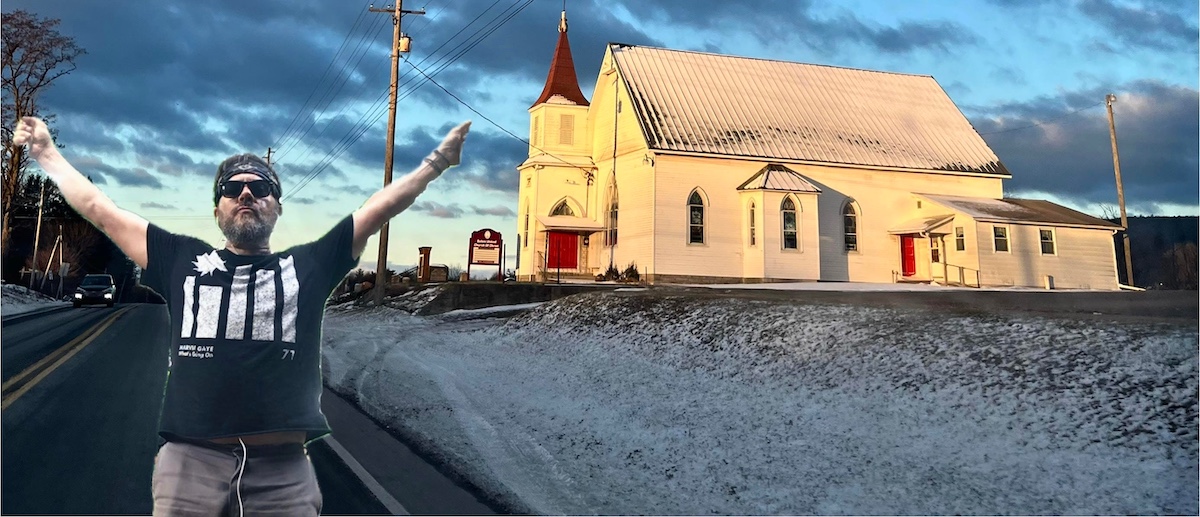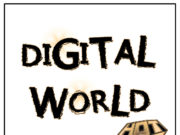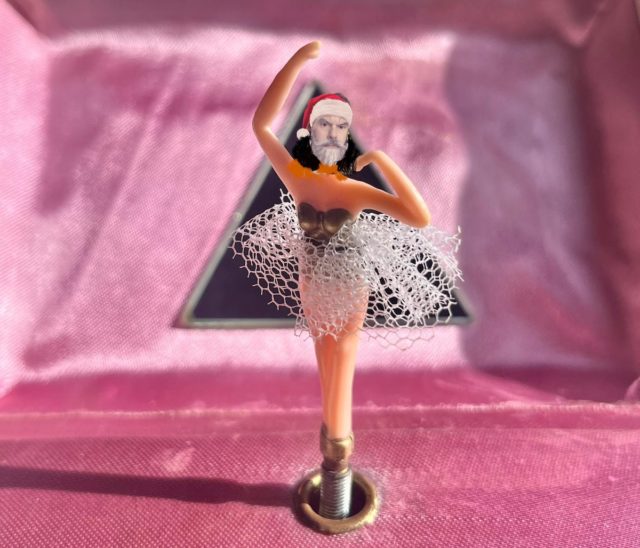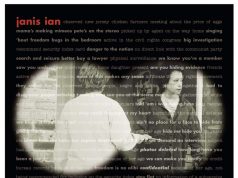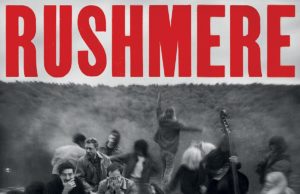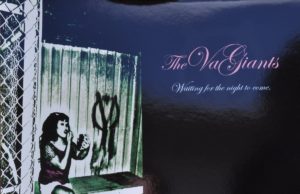jawn /jôn/ noun (chiefly in the greater Philadelphia metropolitan area) used to refer to a thing, place, person, or event that one need not or cannot give a specific name to. Jawn is a neutral, all-purpose noun used to reference any person, place, situation, or object. In casual conversation, it takes the place of the word ‘thing’. Example: “A jawn just fell off that dude’s car and hit our porch.”
 jawn one.
jawn one.
I take all the pumpkins from Halloween and I drop them off the side of the front porch. They thud down into the dead beds down there between the house and the lawn. We had a lot of pumpkins because we live in the country. We don’t pay $12 for a pumpkin from a huge box sitting at some suburban Wegmans. For $12 I can buy an entire field of pumpkins from an Amish farmer who probably prayed for six minutes before he ate breakfast this morning in the dark before the sun. Pumpkins grown by people like that last longer and look better. Country pumpkins grown by Amish farmers are purer. They’re a direct link to a bygone era when men were men and the world was vast and mysterious and unknowable/ unconnectable. Or maybe they’re not, it’s up in the air. Maybe they’re just the same as all the other pumpkins. Maybe the reason I buy so many of them every year is that they’re cheaper than hell. I drop a 20 in the honor box over by the selected gourds and corn stalks and I pull away from the fields with kids in the backseat covered in pumpkins. We picked them ourselves/ lugged them back through the rough shodden fields/ sometimes a long walk of 200 yards if you are ambitious and went hunting for the big boys way at the back of the field. They rot after I dump them overboard. In the winter they break down a little and fade and rot like the dead soldiers must have done after Fredericksburg in December of 1862. Some got buried or hauled away, I guess, but some died over in the trees/ over in the brush behind some old stone barn or some dilapidated springhouse from when the Revolution was new. They rotted away slow in the winter grey/ their faces sinking back into their skulls/ their fingers curling up around their rifles until some kid stumbled upon the scene and gasped at the hole in the forehead and then took the gun and kept it until he too died many moons into the future. The pumpkin seeds come back sometimes and so next summer, while I’m mowing the lawn, I’ll make sure I mow around the spreading vines as they creep out across the grass, and with any luck and a bunch or rain, give us a couple of pumpkins that we grew ourselves without even trying.
jawn two.
Sometimes lately I’ll just be standing there in the yard or in the thrift store or whatever and without warning I’ll find myself immersed in this sort of storm burst of joy. Then I’m hardly able to contain my ecstasy even though I have no idea what is behind it. Well, that’s not entirely true. I suspect that maybe it’s the meds. Or at least partially the meds, I’d say. And by meds I mean the mental health ones/ the Sertraline and Wellbutrin cocktail I ended up settling on for now. They might have timed releases, I don’t know. I don’t really even care because who cares where so-called happiness comes from, you know? Just as long as it shows up sometimes. For me in these situations, it’s almost like sucking on a lemon: that citrus gush of cringey neon coursing through my neck veins like Chinese heroin/ like I sometimes imagine straight shooting old-school Bowery junk directly into the alleys around your jugular must have felt like. Johnny Thunders on Christmas Eve under a used trash bag and someone’s dead dog. It’s romantic in a way, but also dumb. Everything glorious is also ridiculous if you hold it up to the light right. Sucking on a lemon can take you higher but it can also make you nuts. You know who liked to suck on lemons? Confederate General Thomas ‘Stonewall’ Jackson. Legend has it that the masterfully brilliant warrior was obsessed with sucking on wedges of lemon for health reasons. Jackson had one of those epic southland beards of the era and it’s never lost on me how insane and incredible he must have looked as he came over some dirt road on a ridge, his trusty steed Little Sorrel galloping beneath him, as the foot soldiers, tired and weary, came alive at the sight of their beloved leader moving through their ranks with a lemon in his hand like an apple or a pear. Jackson’s most official biographer, the esteemed historian James I. Roberston Jr. claimed that the general’s supposed penchant for lemons was hogwash. “Jackson preferred peaches,” Robertson has claimed. But you know what? Fuck that guy. You don’t need to poke at the mythical powers that make this old universal story a bit more riveting with your little researched truths all the time. There’s a time and a place for that kind of thing, I know, but it isn’t here. It isn’t with Jackson and it isn’t with his eccentric quirks. Even if they aren’t true, they are true to us. So go to hell. Also, I find myself smiling at my own thoughts a lot/ probably more than anyone is rightly supposed to be doing. I guess I’m my biggest fan. It’s weird. Maybe it’s the meds, I guess. I don’t ask questions. I watch Jackson race by, the wind in his hair, bright yellow lemon skin shit-eating grin upon his weathered face.
jawn three.
There has been a lot of Twittery posturing the past few days as people on the internet offer up their unsolicited opinions on that health insurance CEO who was gunned down on a Manhattan street before dawn one morning last week. Some have seized the opportunity to shine a light on the occasion, to point out the long-simmering rage of a boil just beneath the surface of the whole American health-insurance racket. Many of these folks are trying to say that maybe this guy who was killed kind of had it coming. Maybe he’s got a lot of blood on his hands in ways we don’t, as a society, seem inclined to even notice, let alone pay attention to. On the other side of the argument though are the people who contend that no matter what this man might have done or not done in his work life, he was still a human being with a wife and kids, and he still deserved to live on no matter what someone else thought of him… or why they thought that way. Some see the killer, who remains at large, as a sort of folk hero for these trying times. Some see him as a cowardly psychopath who shot a dad in the back and ran away. In a lot of ways, I gravitate towards one side but I cannot tell you which one. Because if I do and you don’t agree with me then I could possibly lose you as a reader and then you won’t be subscribing to my newsletter anymore and then I will lose money and that is something I can’t ever afford to do. It’s hard enough just pulling this adult shit off for me on this tenuous regular basis. I am always dangling by a string, man. Always just a couple bucks away from my own personal Great Depression. But I will say this much. At Gettysburg, there was this young Southern sharpshooter who died of a gunshot down in an area known as the Devil’s Den. It was hot, hot fighting down in there on July 2, 1863. My 3x great-grandfather, Fred Marker, was fighting not far away when this Reb fell. (FYI: I add little mini side-anecdotes about Fred Marker in wherever I can because that’s how I roll). Anyways, a few days after that one particular soldier was killed in the thick of it all, his body was laying all hot and bloated in the steamy summer sun when along came a photographer by the name of Alexander Gardner. Gardner became one of the seminal photogs of the Civil War and one of his most enduring shots is one that he took of this young Confederate, his rifle still propped up against some big rocks where he’d been concealing himself, his body lying a few feet behind the impromptu wall of stones he’d seemingly created to shield him from the very bullet that ended up getting him anyway. The image Gardner took on July 5, 1863, just three days after the sharpshooter had died, and just two days after the now infamous battle had ended, remains, to this day, one of the most raw and enduring captures of war in all of human history. That said, in the mid-1970s a Vietnam vet by the name of William Frassanito was living in Gettysburg when he became obsessed with the photography of the battle. And here’s the kicker. Frassanito eventually published a ridiculously important book on his research and findings titled, Gettysburg: A Journey in Time, in which he proved, quite convincingly, that Gardner’s renown sharpshooter image wasn’t quite what it seemed. As it turns out, Frassanito explained with lots of other photos, Gardner and his assistant had dragged that sharpshooter’s uniformed body from a different place (maybe not so far away) and staged it along with the gun in the photo so that it all seemed to show that the lad had been crouched behind a little stone wall tucked between some massive boulders when he was struck and killed, against all odds, by some unknown soldier’s shot. In other words, nothing is ever quite what it seems, my friend. And yet there is a strange tinge of poetry, I’d propose, in the obscure flow of events/ despite what we may believe now/ or may discover later/ or perhaps never know at all.
To read the rest of this essay and more from Serge Bielanko, subscribe to his Substack feed HERE.
• • •
Serge Bielanko lives in small-town Pennsylvania with an amazing wife who’s out of his league and a passel of exceptional kids who still love him even when he’s a lot. Every week, he shares his thoughts on life, relationships, parenting, baseball, music, mental health, the Civil War and whatever else is rattling around his noggin.
